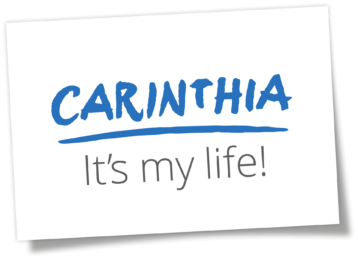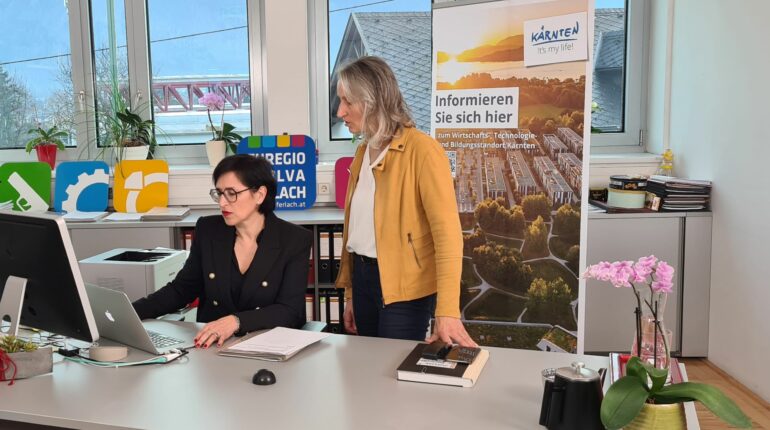International and high quality: Cardbox Packaging
Cardbox Packaging is an international manufacturer of high-quality, sophisticated cardboard packaging with sites in Wolfsberg, Vienna and Pinkafeld in Austria, as well as in the Czech Republic, Serbia and the USA.
Packaging has always been one of the most powerful influencing factors on consumer purchasing decisions. It has a vital function at both the point of sale and in the supply chain. Renowned companies rely on the innovative, intelligent and sustainable packaging solutions made by Cardboard Packaging.
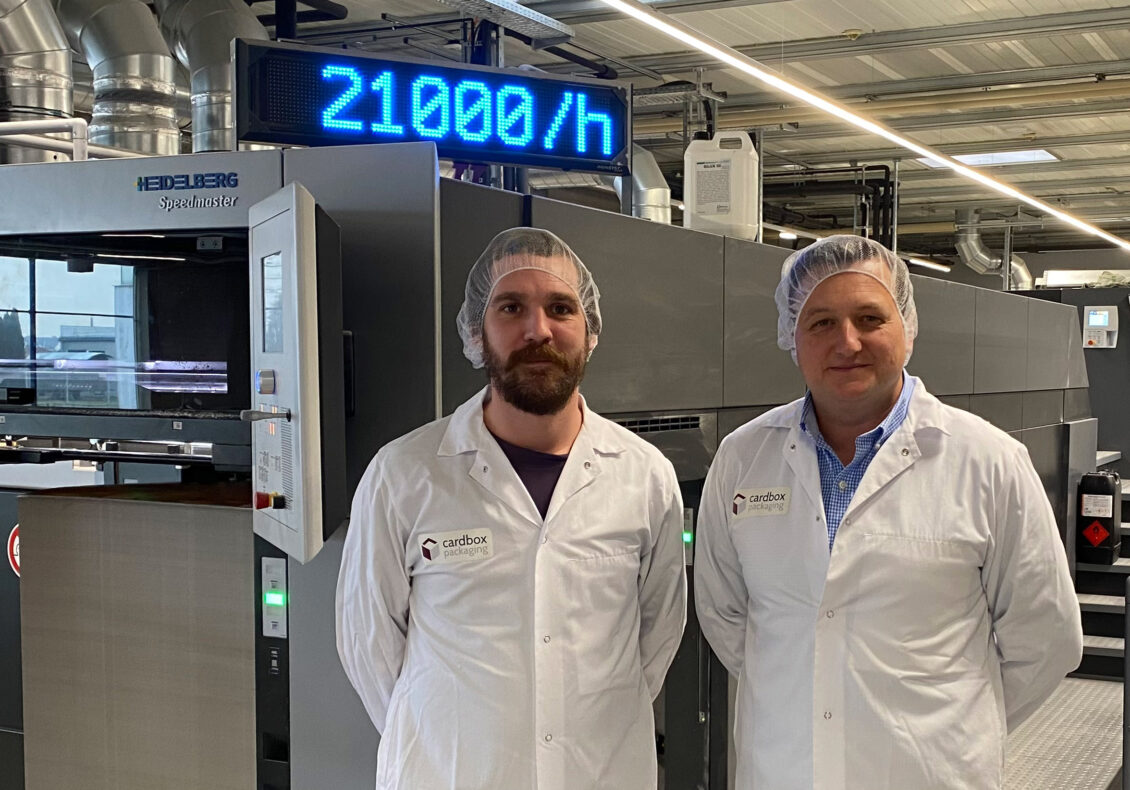
©Cardbox Packaging
On your website, you write: “Our development department is continuously working on perfect packaging solutions for your products from both the marketing and environmental point of view”. That sounds like a company that reinvents itself every day. Tell us more about the history of Cardbox Packaging. How would you explain your company to our readers?
Hockl: We are contract manufacturers of folding cartons. Each folding carton is manufactured for a specific customer, for a specific requirement and for a specific product. We buy the cardboard and are careful to minimise waste in our production process, as cost is a very important factor. Cardbox Packaging specialises in sustainable products and for several years we have been looking to replace PE or PET laminated carton board.
About a year ago, your premises in St. Marein near Wolfsberg were bursting at the seams and so you moved to the site formerly owned by Buch Theiss. What has changed since then? How has the Carinthian site developed?
Hockl: There are usually a variety of reasons why an industrial company decides to relocate. In our case, the motive was a lack of space, as we were already using off-site storage and had transferred the machines to rented halls in other locations. If you want to move an existing printing press, it first has to be dismantled and then reassembled at the new location. That would involve up to eight weeks downtime, which is simply not feasible. In this situation, you automatically invest in new machinery and simultaneously expand capacity with a new generation of machines.
Your company’s commitment to a circular economy is more than just talk. Throughout the entire production process you focus on cutting carbon emissions, reducing the total volume of waste, and using recycled and FSC-certified materials. Is industry ready for your products and where will the journey lead?
Hockl: Our material, cardboard and paper, is completely recyclable. Our recycling rate for cardboard in Austria, but also in Europe, stands at 80%. We want to continue improving this. Waste material generated within the company, such as trim waste, is all recycled by the cardboard industry. The same principle applies to other materials, such as water-based inks and finishes, for which there is a decent recycling system.
Our aim is to replace plastic laminated products that can no longer be recycled under EU rules with dispersion-based barrier coatings.
How do you consistently live up to your claim of not only responding to changing societal conditions and the rapid pace of development in almost fields of technology, but of actively driving this change? How do new developments come about?
Hockl: For years Cardbox Packaging has proved we can handle strong growth very well. A great deal of innovation is generated by our inhouse teams who are extremely creative and are able to come up with promising approaches based on their experience in our industry. We work very closely with different research establishments as well as with makers of brand-name products. Many years of international experience also provide us with a great deal of useful input for the day-to-day management of our business.
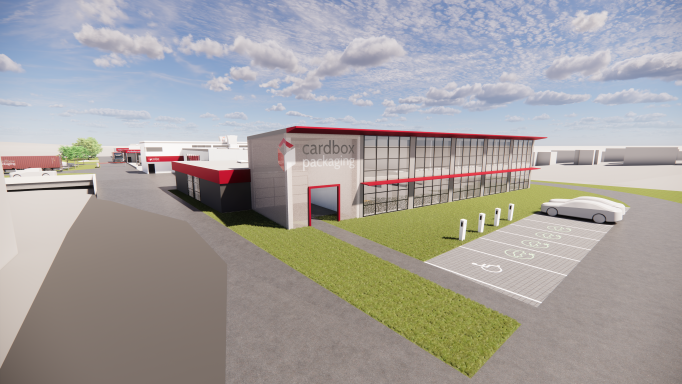
©Cardbox Packaging
Besides sustainable production, what are the other advantages of cardboard packaging? Which well-known brands have you been able to impress?
Hockl: Folding boxes have the advantage that they can be produced cheaply and one reason for this is because recycling enables them to be returned to the market. Also, offset printing is extremely economical. This enables us to produce smaller series for the local market. We pack Chocolate Banana Bars and Ladyfingers for Manner and Küfferle Chocolate Umbrellas.
As an entrepreneur in Wolfsberg, which location factors do you think are of particular interest to companies setting up business in the region? Which do you appreciate most personally and to what extent does the province of Carinthia and the KWF as a funding partner help you to achieve your goals?
Hockl: The funding partner KWF is an important and supportive partner. We work intensively in the areas of innovation and sustainability. The Austrian Research Promotion Agency (FFG) is an important point of contact and so, therefore, is the KWF, which as the junior partner provides us with support on the ground. The KWF is supporting us with our latest project, with the investment, the new capacities and the move to the new site.
Skilled workers are also urgently needed in Carinthia. How do you deal with this challenge and what are the advantages of your geographical location here in the Alps-Adriatic region when it comes to finding skilled workers? Are the Carinthia University of Applied Sciences, the University of Carinthia or any of the colleges in Carinthia a source of good skilled workers?
Hockl: I believe that employees are a vital factor for a company’s long-term success. We seek access to universities and research institutes, as well as to the open labour market and packaging markets. It is perhaps possible to find trained employees there too. But in the main, we try to train them ourselves across all our own plants. In recent years, it has become increasingly important that we train our employees so that they can be deployed anywhere in the company, not just at a specific location.
If a company, service provider or supplier is interested in working in Carinthia and with Cardbox Packaging what do they have to bring to the table? Who could be a potential partner?
Hockl: There are certain ideals and values that are extremely important to us in the way we live and work, not just within the company, but also in our relationships with our customers and our partners. We have an honest, transparent and sustainable style of communication which enables us to build long-term relationships. It is crucial to remember that focusing on the short-term does not deliver an instant advantage; the true benefits are reaped from long-term collaborations. We are not a company that is only interested in short-term advantages; on the contrary, we try to see something strategic, sustainable and long term in people, in the workforce and in our partners.
Covid lockdowns, the war in Ukraine, supply chain issues and the current energy problems – how does Cardbox Packaging adjust to the constantly shifting constellations?
Hockl: We were hit very badly by Covid. However, if anything, we did rather well out of it since 80% of our production is for the food industry. Ukraine is an issue that affects us all and its impact is likely to be felt not only over the next few months, but probably also over the next few years. The folding box perhaps does not require vast amounts of energy, but nevertheless, our energy costs have risen sharply and will continue to do so. Our main suppliers are big energy users and as a result our main materials, i.e. cardboard and paper, have become more expensive. The same is true of ink and finishes where we have seen double-digit price rises. We have one and a half years behind us in which there was a shortage of cardboard. This was a difficult period for our team, trying to safeguard the supply chain for our customers and consumers day-in day-out.
Do you see any particular potential or additional possibilities for cooperation in neighbouring countries where Standortmarketing Kärnten is currently running campaigns to promote Carinthia as a business location (northern Italy, Slovenia, Austria, southern Germany)?
Hockl: The relevant areas for us are Slovenia and Austria. We have had very positive experience with Slovenia, especially on the labour market. We also have ample experience with research establishments both in Austria and abroad. In this context, the universities in Ljubljana, but also in Graz, Vienna and Klagenfurt should be mentioned. We are rather cut off from southern Germany due to the mountain range that runs through Carinthia. Interestingly enough, Italy is also rather isolated from our perspective. But active partnerships are developing between Slovenia and Carinthia.
Are there any particular projects on the Italian, German or Slovenian markets or is anything planned for the future?
Hockl: Since we have expanded, we are specifically looking for workers. We might also consider how the University of Ljubljana matches our developments in terms of specialist knowledge in paper production or barrier development (dispersion barrier coating on the inside of cardboard).
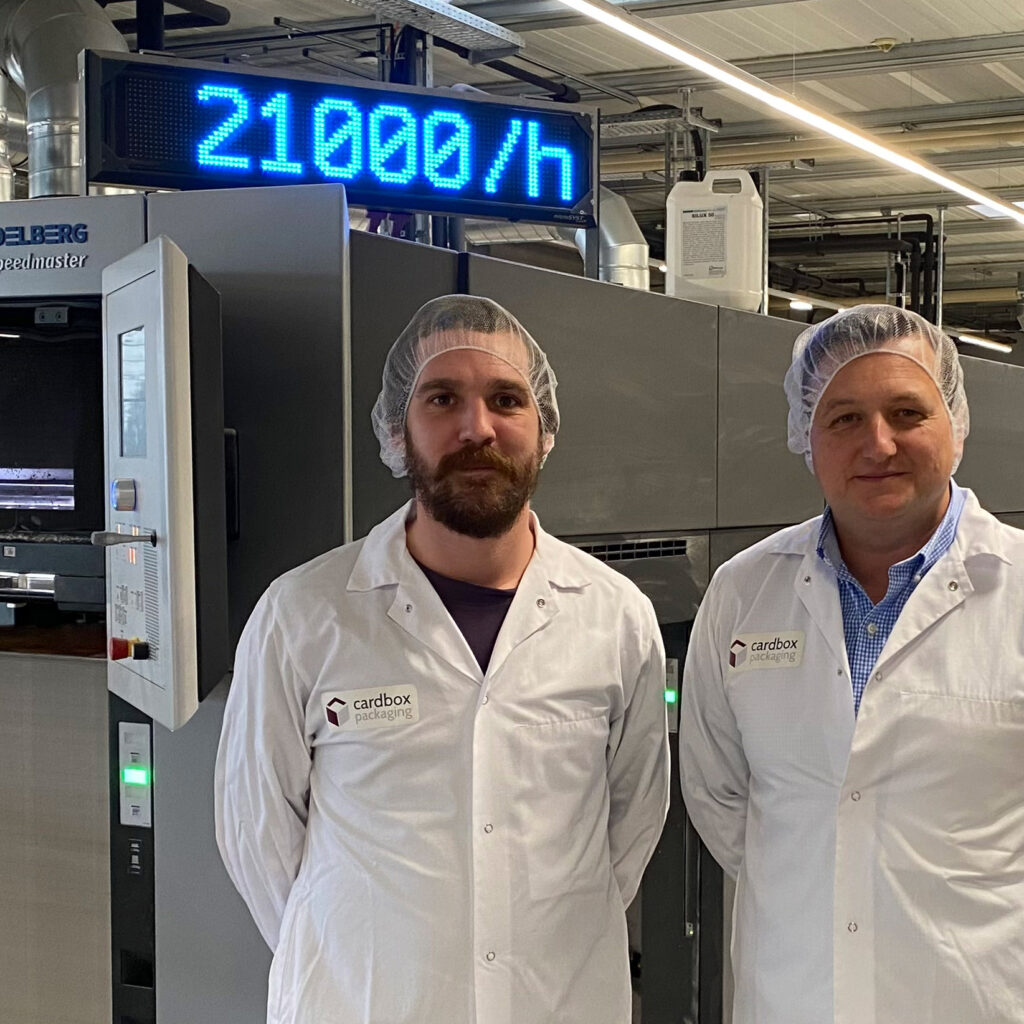
Klaus Hockl, Managing Director
“Cardbox Packaging is a renowned specialist in sustainable products. Over the years, with continued commitment and a strong vision, we have taken on the challenge of replacing traditional PE or PET laminated cartons with more environmentally friendly alternatives.”
